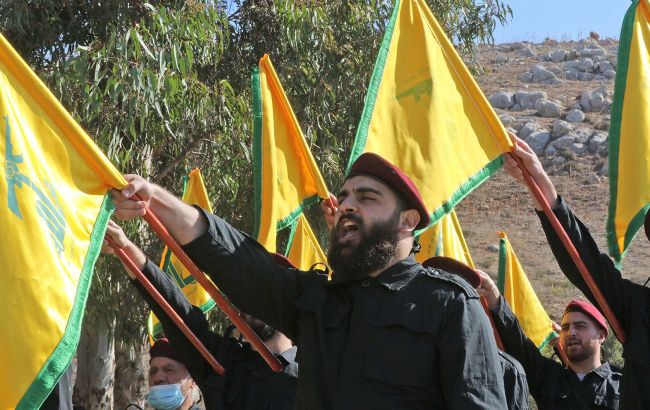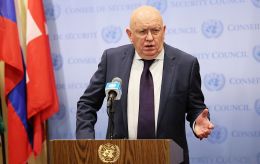Who is behind pager explosions in Lebanon and will Hezbollah respond
 Hezbollah fighters (photo: Getty Images)
Hezbollah fighters (photo: Getty Images)
Several hundred pagers used by the Hezbollah group exploded simultaneously in southern Lebanon on Sept 17.
RBC-Ukraine reports details of this incident and how the world is reacting.
Сontents
How the decision was made
Hundreds of pagers of Hezbollah militants exploded simultaneously in Lebanon. At least 9 people were killed and more than 2,800 injured in the explosion.
The operation was approved earlier this week at security meetings with Israeli Prime Minister Benjamin Netanyahu, high-ranking members of his cabinet, and heads of security services. Israel did not inform the United States before the operation, Axios reports, citing two US officials.
The source also said that Israel had conducted the operation to take the fight against Hezbollah to a new level while trying to prevent escalation to a full-scale war. The operation was reportedly aimed at undermining confidence in Hezbollah and creating a sense within the group that it was completely infiltrated by agents.
According to Al-Monitor, Israel carried out the attack after intelligence gathered information that two Hezbollah members had noticed that their pagers were hacked. Senior intelligence sources said that the decision to carry out the operation was “forced.”
How pagers could have been detonated
According to Reuters, the pagers were modern and recently purchased. The Taiwanese manufacturer Apollo issued a statement saying that the pagers that exploded in Lebanon were manufactured under the Apollo brand name but by a European subcontractor.
The New York Times, citing two sources, writes that the explosive material, weighing only 1-2 ounces (1 ounce - 28.34 g - ed.), was implanted next to the battery of each pager. There was also a built-in switch that could be turned on remotely to detonate the explosives.
At 3:30 p.m. in Lebanon, the pagers received a message allegedly from Hezbollah leadership, which activated the explosives. The devices were programmed to beep for several seconds before the explosion.
There have already been cases in Israel's history when a similar method was used. For example, the Israeli security services successfully killed a terrorist by planting 50 grams of explosives in a telephone.
It is most likely that the explosives were installed in the pagers at the stage of their production, The Stack, media specializing in IT technologies, said, citing several cybersecurity experts.
Planting explosives on the scale of thousands of devices is potentially extremely difficult, as it requires intercepting the supply chain. But other methods of detonation, such as overheating batteries, are even more difficult.
Reuters reported in July that Hezbollah has resorted to the widespread use of personal couriers and pagers to avoid cybersecurity risks. According to three of the agency's sources, the group also used a private fixed-line communications network established in the early 2000s. If the pagers had been packed with explosives, this network could potentially have been compromised to deliver a detonation signal.
Reaction to the attack
After the bombings, Hezbollah blamed Israel for the attacks and announced that it was “at the highest level of readiness to defend Lebanon and its people.” The group also promised to retaliate against Israel.
Iranian Foreign Minister Seyed Abbas Araghchi strongly condemned the attacks on Lebanese citizens during the simultaneous pager explosions, calling it “Israel's terrorist action.” Iran also expressed its readiness to assist in the treatment of the victims or to transport them to Tehran.
US Secretary of Defense Lloyd Austin called his Israeli counterpart, Yoav Gallant, after the pagers exploded. Neither the Pentagon nor Gallant's office provided details about the call.
“To my knowledge, there is no US involvement in this at all,” Pentagon spokesman Patrick Ryder told reporters.
He declined to say whether Austin and Gallant discussed the Lebanon bombings but reiterated that US officials have consistently insisted on de-escalation.
Shortly after the attack, Netanyahu and Gallant gathered at the headquarters of the Israeli Defense Ministry for consultations with the heads of various security agencies. Later in the evening, Foreign Minister Israel Katz and Minister of Strategic Affairs Ron Dermer joined the consultations, Haaretz reports.
Chief of the General Staff of the Israeli Defense Forces, Herzi Halevi, held security consultations with all military unit commanders on Monday evening “with an emphasis on readiness for offensive and defense in all directions.”
The IDF said that there were no specific instructions from the home front command, but urged the public to be vigilant and suggested that the situation could be unstable.
Since October 2023, Hezbollah has been regularly shelling northern Israel. Israel sporadically responds with targeted assassinations of the group's leaders and the destruction of rocket launchers.
Sources: public statements of Hezbollah, Israeli and Iranian politicians, and articles by The New York Times, The Stack, Al-Monitor, Reuters, Haaretz, and The Times of Israel.

